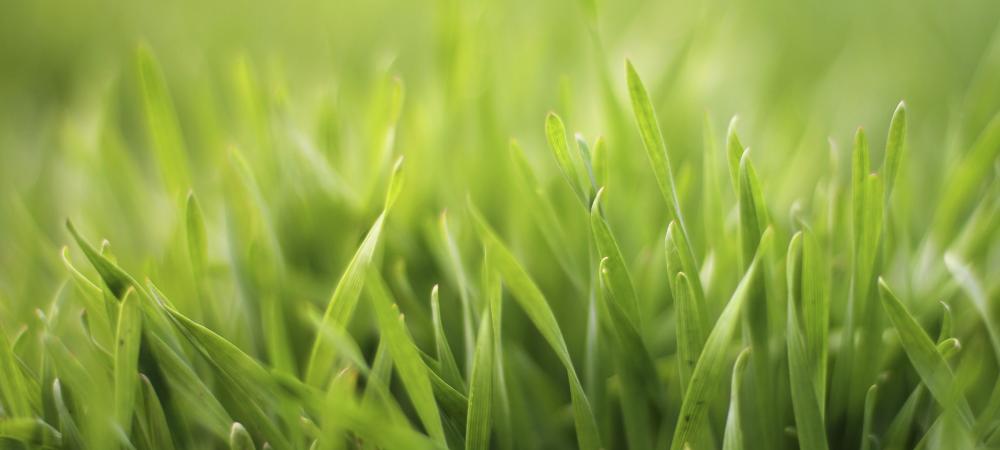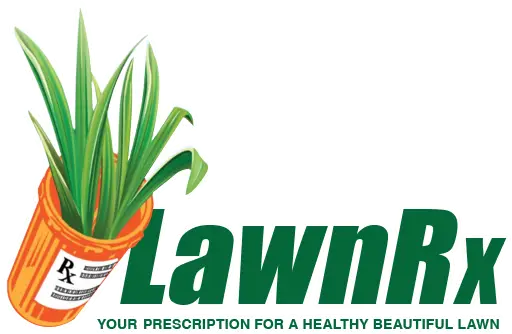Breaking Down the Different Types of Grasses Grown in PA

Whether you are buying a new house or business or just thinking about establishing a new lawn in Latrobe, PA, there are a few things to consider before spreading a new grass seed. Here in PA, we have mild, humid summers and cold, brutal winters. That means that cool-season grasses grow best here. But what exactly are cool-season grasses, and what does that mean? Follow along as LawnRx breaks everything down you need to know about the different types of grasses, those that grow best in our Western PA climate, and which will work best for you.
Two Types of Grass, Cool-Season, and Warm-Season
There are two categories of grasses, cool-season, and warm-season. Warm-season grasses include varieties such as St. Augustine, centipede, Bermudagrass, and zoysia. Warm-season grasses typically thrive in the southern regions that have hot summers and more moderate winters. They tend to be denser and go dormant in the winter when temperatures drop below 65 degrees consistently.
Cool-season grasses include varieties such as Kentucky bluegrass, tall fescue, and ryegrass. They grow best in northern climates such as Pennsylvania and typically go dormant when temperatures fall below 45 degrees consistently. As mentioned earlier, cool-season grasses typically grow best here with a blend of warm-season grasses mixed in. Let’s take a look at the most common cool-season grasses found on Latrobe area properties.
Common Cool-Season Grasses Found in Latrobe
Fine Fescue
There are two different types of fescue, fine fescue, and tall fescue. Both have blades of a dark green shade. Fine fescue is a bunching grass that is great for cool, shady, dry areas or areas with bad soil quality. It is an excellent seed to use in yards with an abundance of shade or that struggle with moisture retention or poor soil. It’s tougher than other grasses and doesn’t require the same diligence to watering and fertilization schedules.
Tall Fescue
Tall fescue has a wider leaf blade than fine fescue and has the added benefit of being drought tolerant. Like Kentucky bluegrass, tall fescue is widely used on lawns that have frequent foot traffic. It’s not as susceptible to pesky insects as Kentucky bluegrass and makes a natural weed controller stopping weeds from gaining access to sunlight. It does well in both sun and shade and can go extended periods without frequent watering. So, what’s not to love about this lively green turf? It grows super fast and will require regular mowing, something to keep in mind depending on how often you want to cut your lawn.
Kentucky bluegrass
One of the most popular turf grasses grown here in Pennsylvania is Kentucky bluegrass. With its dark-colored leaves and soft texture, it is a short to medium, robust grass type used amongst golf courses and playgrounds for its high tolerance to heavy foot traffic. It’s great for establishing new lawns and patching bare spots because it grows rapidly and recovers quickly from damage. It prefers partial sun to mostly shade, and of all the grass varieties, this one needs the most diligent watering. It handles droughts better during the cool season but can struggle during the summer. While it’s great for our cold winters, it does become vulnerable to insects and diseases when extreme heat is introduced. To increase its resistance to disease, many lawn care providers will mix in a blend of ryegrass. If you have kids, pets, or spend a lot of time hosting barbecues in your back yard, Kentucky bluegrass is the turf for you.
Ryegrass
Ryegrass is often used in conjunction with other cool-season turfs to help repair and restore thinning lawns. This is because perennial ryegrass germinates faster than any other grass seed. It is commonly mixed with Kentucky bluegrass due to its rapid growth. Unlike Kentucky bluegrass, which spreads by underground stems called rhizomes, ryegrass forms in bunches. In this way, it helps to shade the bluegrass while it becomes established. It is a hardy, low-maintenance grass that is insect and disease resistant. Unfortunately, it grows in clumps and can often appear patchy and bare spots regularly need to be re-seeded.
Common Warm-Season Grasses Found in Latrobe
While cool-season grasses find their way onto most Latrobe area properties, there is one warm-season grass that grows well in the southern part of PA. Zoysia is a slow-growing, robust turf with a fine texture that doesn’t require much water or mowing. This carpet-like grass is often used for its ability to prevent weeds. It can, however, become invasive and crowd out all other species of grasses, including your flower beds, so be cognitive of its growth patterns.
Factors to Consider When Determining Grass Type
When it comes to determining the best seed for a lawn, it’s important to take a moment and assess your property. Most lawn care providers look at the following factors.
- How much rain do we receive on average in Latrobe?
- How much shade does your yard receive?
- How much work do you want to put into your lawn?
- The amount of traffic that typically occurs on your lawn
- Lastly, the specific look you are going for
Start Planning for Spring Now With LawnRx’s Five-Step Comprehensive Lawn Care Program
Start planning now and get your lawn in tip-top shape this spring with LawnRx’s professional lawn care services. We can help you determine which type of grass works well with your Latrobe area property. And for whatever grass type you have, LawnRx offers a five-step comprehensive lawn care program designed to create and maintain a healthy, thick, weed-free lawn. Our lawn care program includes the appropriate amounts of fertilizer to maintain a well-nourished, robust lawn and the exact amount of weed control needed to keep your turf clean and well-manicured. Learn more about our highly effective lawn care program by visiting our website now. Or you can fill out our online form, and we’ll get back to you by the next business day, and you can always give us a call at 724-585-8952.
For more tips and ideas, follow our monthly blog, and don’t forget to check us out on social media. You can follow and like us on both Facebook and Instagram.
